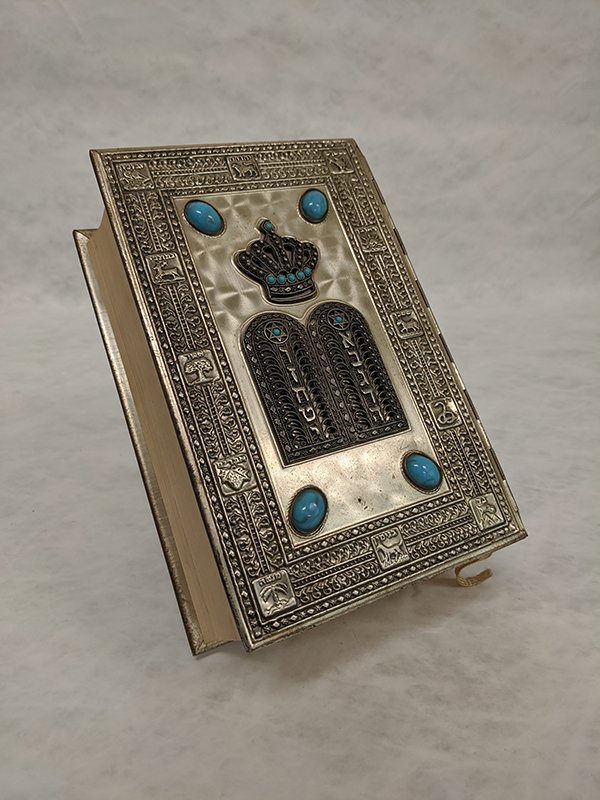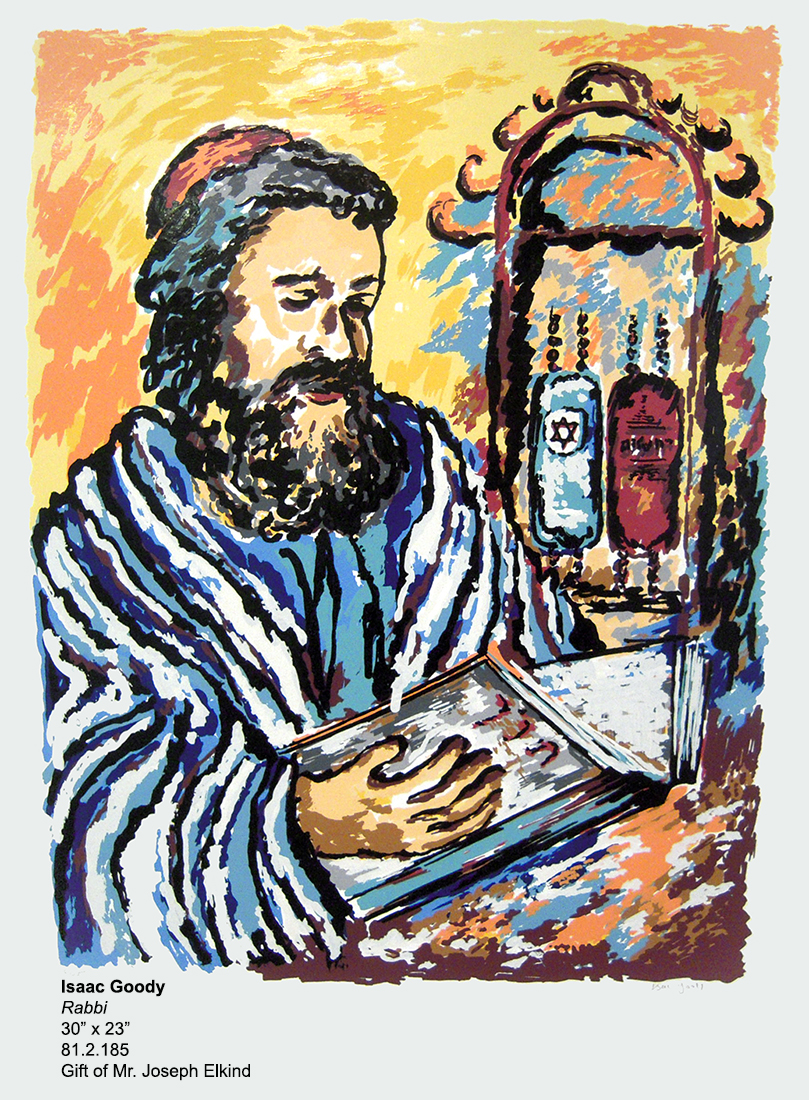The Illustrated Jerusalem Bible in Hebrew and English
Published by Jerusalem Bible Publishing Co, Inc., 1958
Jerusalem – New York – London
Edited by M. Friedlander
Silver and turquoise binding
1,982 pages
Richard J. Hughes Papers, MSS #3
SHANA TOVA (Happy New Year)
At this time of year, Rosh Hashanah and Yom Kippur, the two the holiest days in the Jewish faith are observed. The observances are a blend of joy and solemnity, feasting and fasting, and prayer that make up the spiritually inspired head of the Jewish year. Rosh Hashanah, the Jewish New Year, is a time of family gatherings and special meals. Unlike the secular New Year in the Gregorian calendar (January 1), Rosh Hashanah is a time of judgment and remembrance, on which G-d reviews and judges a person’s deeds in the past year. It is a time of prayer and penitence. Yom Kippur (The Day of Atonement) is the day of repentance, the most holy day on the Jewish calendar. Described as a Shabbat shabbaton (Shabbat of solemn rest) in the Torah, Yom Kippur is a day of fasting, prayer, and reflection. Yom Kippur is the culmination of a period of time during the month of Elul in which Jews are required to take stock of their lives, to ask forgiveness from friends and family, and to take steps toward self-improvement for the year to come.

